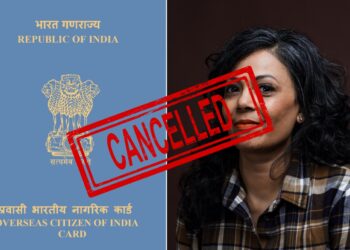Unified Payments Interface (UPI) has revolutionized how Indians manage financial transactions. In an unprecedented move, UPI has extended its reach to Non-Resident Indians (NRIs), enabling them to perform no-fee transactions seamlessly with individuals in India. This initiative not only strengthens financial ties between NRIs and India but also boosts economic engagement.
What Is UPI, and How Does It Work for NRIs?
Unified Payments Interface, developed by the National Payments Corporation of India (NPCI), is a real-time payment system that allows immediate money transfers through a mobile platform. This move enables NRIs to send and receive funds directly using their international mobile numbers without needing an Indian bank account.
Key Advantages for NRIs
The initiative brings numerous advantages for NRIs who frequently engage in financial transactions with India. Key benefits include:
- No Transaction Fees: Unlike traditional international payment methods, Unified Payments Interface charges zero transaction fees, making it an affordable choice for frequent transactions.
- Instantaneous Transfer: Unified Payments Interface offers real-time fund transfers, eliminating delays and ensuring NRIs can send or receive funds instantly.
- Cross-Border Financial Inclusion: By eliminating barriers such as high transfer fees, Unified Payments Interface makes financial participation easier for NRIs, fostering stronger economic ties.
Eligibility Requirements for NRIs
NRIs can leverage UPI’s capabilities by meeting specific eligibility criteria. Key requirements include:
- Linked Bank Account in India or NRE/NRO Account: While Unified Payments Interface generally requires an Indian bank account, NRIs can link their NRE (Non-Resident External) or NRO (Non-Resident Ordinary) accounts.
- International Mobile Numbers: For NRIs, Unified Payments Interface is accessible via specific countries and requires international mobile numbers linked to their accounts.
- Supported Countries and Banks: Unified Payments Interface support is currently available in certain countries and bank partnerships, expanding over time.
| Supported Countries | Major Banks Supporting UPI for NRIs |
|---|---|
| USA | State Bank of India (SBI) |
| Singapore | HDFC Bank |
| UK | ICICI Bank |
| UAE | Axis Bank |
| Australia | Punjab National Bank |
Setting Up Unified Payments Interface for NRIs: A Step-by-Step Guide
Step 1: Verify Eligibility
Confirm that your bank is on the list of supported banks for Unified Payments Interface transactions and that UPI is accessible from your residing country.
Step 2: Register Using a UPI-Enabled Mobile App
Download a UPI-enabled app (e.g., Google Pay, PhonePe) that supports international numbers and follow the app’s steps to register.
Step 3: Link Your NRE or NRO Account
During the registration process, link your NRE/NRO account to the app, verifying with your bank to complete setup.
Step 4: Generate a Unified Payments Interface PIN
Upon registration, set up a UPI PIN to secure transactions. The PIN enables hassle-free fund transfers while ensuring account security.
Transaction Process: Sending and Receiving Payments via Unified Payments Interface for NRIs
- Initiate Transaction: Open the UPI app, select “Send Money,” and enter the recipient’s Unified Payments Interface ID or mobile number.
- Enter Amount and Authenticate: Specify the transfer amount and enter your UPI PIN to authenticate the transaction.
- Receive Money Easily: To receive funds, NRIs simply need to share their UPI ID with the sender in India.
Transactions reflect immediately upon completion, with no additional steps required for currency conversion.
UPI: Expanding Financial Flexibility and Enhancing Economic Growth
This Unified Payments Interface service for NRIs is pivotal in strengthening India’s global economic influence, increasing remittances, and encouraging financial inclusion. The convenience and cost-efficiency make UPI a preferred tool for both personal and business transactions for NRIs.
UPI’s extension to NRIs signifies a transformative change in cross-border transactions, ensuring that NRIs can manage their financial interactions with India efficiently and affordably. This development strengthens economic bonds, facilitates quick transfers, and is a testament to India’s commitment to inclusivity in the global financial landscape.











